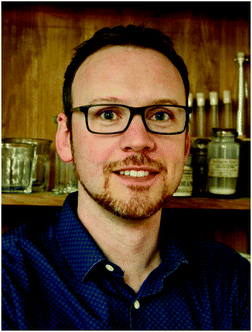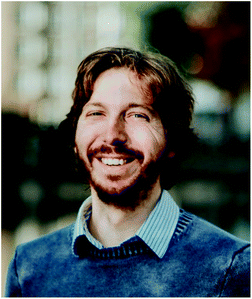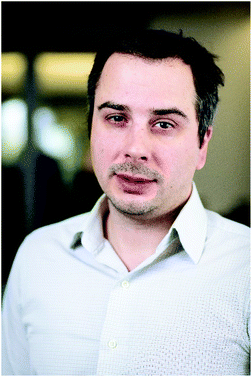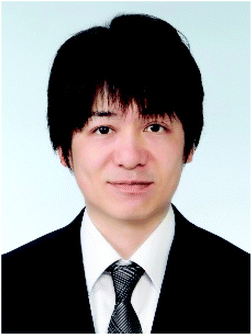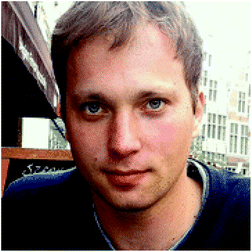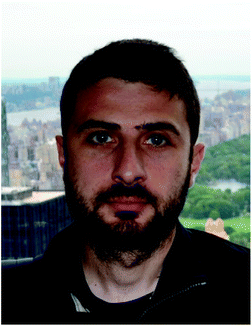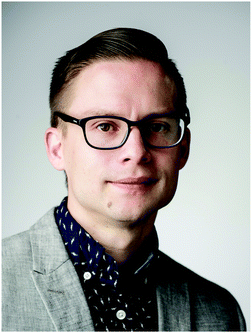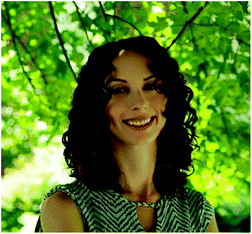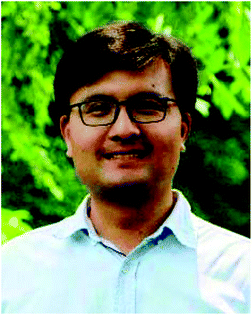DOI:
10.1039/D0GC90114H
(Profile)
Green Chem., 2020,
22, 7582-7584
Green Chemistry profiles: contributors to the Emerging Investigators 2020 issue
Abstract
Green Chemistry is very pleased to welcome you to the second Emerging Investigators themed issue. This issue highlights the excellent research being carried out by the rising stars of the green chemistry field from across the globe. All contributors were nominated by a member of the Green Chemistry Editorial or Advisory Board as an outstanding researcher in the early stages of their independent career, making a significant contribution to the advancement of green chemistry. Their profiles are shown in this editorial and we congratulate them on being featured, and wish them every success in their future research and endeavours. We are delighted to present the resulting collection of articles, which cover a breadth of subjects and provide a valuable insight into the future of green chemistry; we hope that you enjoy reading it.
Jérôme Canivet was appointed a CNRS researcher at the IRCELYON in 2010. He works on developing innovative catalytic processes for sustainable fine chemicals and energy. His research topics range from C–C coupling to asymmetry, photocatalysis and green fuels. In 2018, he received the Young Investigator Award from the Catalysis Division of the French Chemical Society for creating trends reducing the gap between homogeneous and heterogeneous catalysis. He further aims at exploiting the confinement of molecular catalytic systems in porous structures for the improvement of their catalytic activity and selectivity, and he is coordinating cooperative projects on this topic.
Peter J. Deuss completed his studies at the University of Amsterdam and thereafter joined the group of Paul Kamer at the University of St Andrews as a PhD student. He obtained his degree in 2011 and after working at the MRC UK Laboratory of Molecular Biology in Cambridge he moved to the University of Groningen where, after post-doctoral work in the groups of Katalin Barta and Erik Heeres, he started in 2016 as a tenure track assistant professor in green and smart biomass processing in the chemical engineering department of the Engineering and Technology Institute Groningen (ENTEG).
Jakub Kostal is an Assistant Professor of Chemistry at the George Washington University, where his group develops computational methods for the design of safer and efficacious chemicals. Dr Kostal is the founder and Principal of Designing Out Toxicity LLC, which provides consulting services for filling toxicological data gaps using
in silico predictive tools. He holds a PhD in Theoretical and Biophysical Chemistry from Yale University (PhD 2012) under the supervision of William Jorgensen and a BA in Chemistry and Biochemistry from Middlebury College (BA 2006). Dr Kostal completed postdoctoral work with Paul Anastas and Julie Zimmerman at Sustainability A to Z.
Yasutaka Kuwahara received his PhD degree in engineering from Osaka University in 2011. He joined Prof. C. W. Jones’ group at Georgia Institute of Technology, USA, as a postdoctoral fellow in 2011. He was a researcher at National Institute of Advanced Industrial Science and Technology (AIST), Japan in 2012–2014. He moved to his current faculty in 2014, and then became a lecturer in 2019. His current research interests include the design of nanostructured catalysts with multi-functionalities utilizing porous materials and their applications to green chemical reactions and conversion of energy and resources.
Vitaly Ordomsky received his MSc (2006) and PhD (2009) degrees from Moscow State University in the field of application of zeolite materials in catalysis. He was a postdoctoral researcher in the Department of Chemical Engineering at Eindhoven University in the Netherlands, working on biomass conversion using heterogeneous catalysts. Afterwards, he received a permanent position in 2013 as a researcher at the CNRS (France) in the Energy group at Lille University working on C1 chemistry. From 2016 to 2019 he was a CNRS researcher in the E2P2L laboratory in Shanghai. His main research field is the development of new nano-materials for sustainable chemistry.
Davide Ravelli is currently an assistant professor in the Department of Chemistry of the University of Pavia, where he also obtained his PhD in chemistry in 2012 (Prof. A. Albini as the supervisor). His main research interests focus on the generation of radical intermediates through photocatalytic means and their application in sustainable organic synthesis. In 2017, he received the Ciamician medal and the Vincenzo Caglioti international award.
Derek Vardon is a Senior Staff Research Engineer and research project team leader at the National Renewable Energy Laboratory (NREL). His research interests include applied catalysis for renewable diesel and aviation fuels, fuel-property informed process design, decarbonization of the transportation sector, and advanced catalyst material synthesis and characterization for biomass conversion. Since 2013, he has worked in the National Bioenergy Center at NREL. He received his B.S. (2010), M.S. (2012), and Ph.D. (2015) in Environmental Engineering from the University of Illinois at Urbana-Champaign. Prior to entering college, he served 6 years in the U.S. Navy as a nuclear electrician's mate.
Dr Voutchkova-Kostal is an Associate Professor in the Chemistry Department at George Washington University in Washington, DC. Her research focuses on the development of processes that reduce environmental impact and the development of tools for designing safer commercial chemicals. She obtained her BS in Chemistry from Middlebury College, and her PhD in organometallic chemistry from Yale University under the guidance of Bob Crabtree. Her post-graduate work was at the Yale Center for Green Chemistry and Green Engineering with Paul Anastas and Julie Zimmerman, focused on the rational design of commercial chemicals.
Feng Wang received his B.Sc. from Zhengzhou University (1999) and his Ph.D. from Dalian Institute of Chemical Physics, the Chinese Academy of Sciences (2005). He spent 2005–2006 as a postdoctoral fellow at the University of California, Berkeley in the USA and 2006–2009 at the Catalysis Research Center at Hokkaido University in Japan. He serves as a full professor and an independent PI at Dalian Institute of Chemical Physics (2009), is a joint professor at the State Key Laboratory of Catalysis at DICP (2013), and is the director of the Division of Biomass Conversion & Bio-Energy at DICP (2018 to present). He served as the Cheung Kong Professor at Dalian University of Technology in 2016. His current research focuses on heterogeneous catalysis and biomass conversion.
|
| This journal is © The Royal Society of Chemistry 2020 |
Click here to see how this site uses Cookies. View our privacy policy here. 
